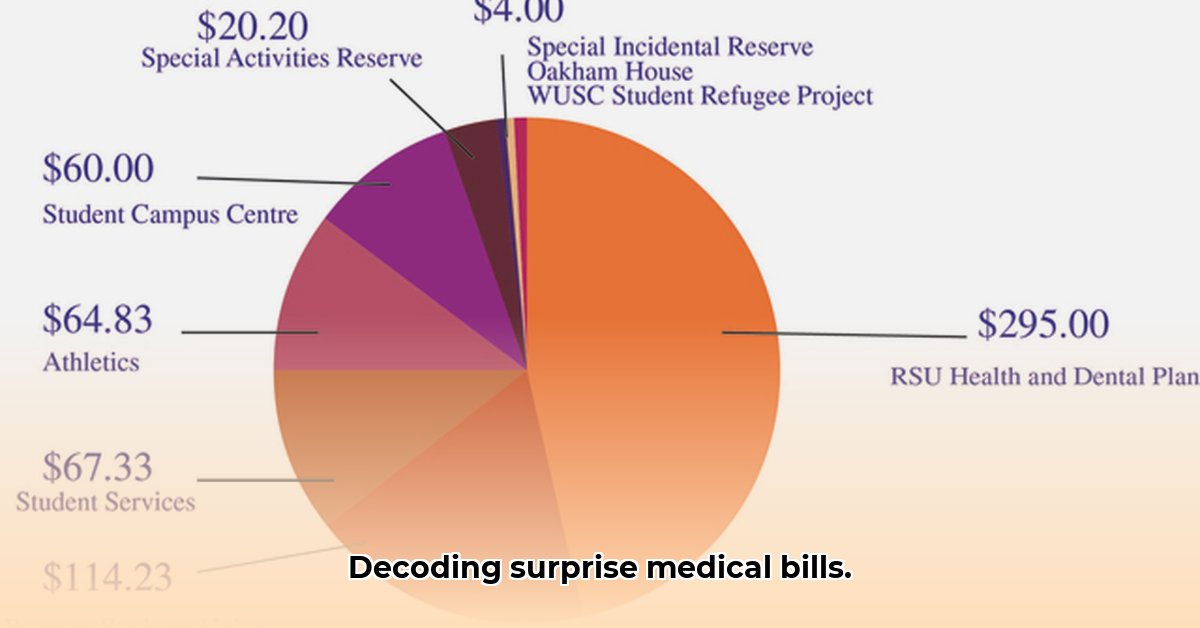
Understanding Ancillary Healthcare Services
Ancillary services encompass supplementary healthcare procedures and tests that complement primary medical care. Think of them as the crucial supporting elements enabling accurate diagnoses and effective treatment plans. These services are essential for comprehensive patient care, yet understanding their billing intricacies can be challenging. This guide clarifies the complexities of ancillary healthcare billing in 2025, providing actionable steps for providers and patients alike.
Types of Ancillary Services and Their Billing Codes
Various ancillary services exist, each with its unique billing codes:
- Diagnostic Imaging: X-rays, CT scans, MRIs, ultrasounds (codes vary based on body part and procedure).
- Laboratory Tests: Blood tests, urine analysis, tissue biopsies (codes vary by test type and methodology).
- Rehabilitation Services: Physical therapy, occupational therapy, speech therapy (codes based on session duration and type).
- Cardiology Services: ECGs, stress tests (codes reflective of specific cardiac evaluations).
- Respiratory Services: Pulmonary function tests (codes vary depending on specific testing).
Medicare Part A & Part B Reimbursement for Ancillary Services
Medicare reimbursement for ancillary services differs significantly between Part A and Part B, creating potential confusion and challenges.
Medicare Part A (Hospital Insurance)
Part A generally covers ancillary services provided during a hospital stay. However, even within this context, specific criteria and documentation requirements must be met for successful reimbursement. Failure to meet these requirements frequently results in claim denials.
Medicare Part B (Medical Insurance)
Part B typically covers ancillary services received outside of a hospital setting, such as outpatient lab tests or physical therapy. Discrepancies in coverage interpretation between providers and Medicare often lead to disputes and delayed payments.
Addressing Common Denial Reasons and Appeal Strategies
Common reasons for Medicare Part A and Part B ancillary service claim denials include:
- Incorrect coding: Using the wrong billing code.
- Insufficient documentation: Lack of comprehensive medical records supporting the necessity of the service.
- Timely filing issues: Missing the established claim submission deadlines.
- Service not medically necessary: The ancillary service is deemed not essential for treatment.
Appealing Denied Claims: A stepwise approach to appealing denied claims includes:
- Review the denial notice thoroughly: Identify the exact reason for denial.
- Gather comprehensive supporting documentation: Medical records, billing statements, and any correspondence.
- Submit a well-written appeal: Clearly explain why the denial is incorrect, citing relevant evidence.
- Track the appeal's progress: Monitor the status of your appeal through official Medicare channels.
- Consider professional assistance: If complexities arise, consult a healthcare billing specialist or legal counsel.
State-Level Regulations Governing Ancillary Services
State regulations concerning ancillary services and billing vary significantly nationwide. Providers must adhere to individual state rules, creating a complex landscape demanding diligence and awareness. This lack of uniformity in state regulations adds complexity to insurance coverage and reimbursement processes. Staying informed about state-specific rules is critical to ensure compliance and avoid costly errors.
Billing and Coding Best Practices: A Step-by-Step Guide
Accurate billing and coding are vital for preventing payment delays and denials.
- Utilize accurate medical codes: Employ the correct Current Procedural Terminology (CPT) and Healthcare Common Procedure Coding System (HCPCS) codes.
- Maintain comprehensive medical documentation: Thoroughly document the medical necessity of each service.
- Submit claims promptly: Adhere to all submission deadlines.
- Regularly audit billing practices: Continuously review processes to identify and rectify potential errors.
Technology Integration in Ancillary Services Billing
Telehealth and AI are transforming ancillary services, creating both opportunities and challenges. Telehealth allows for remote provision of services, while AI enhances diagnostic accuracy. However, these technologies introduce new billing considerations and complexities that both providers and payers must adapt to.
Risk Management in Ancillary Services Billing
Providers must proactively manage risks associated with ancillary service billing:
- Billing disputes: Implementation of robust billing systems and thorough record-keeping.
- Regulatory non-compliance: Staying updated on federal and state regulations.
- Data security breaches: Prioritizing data encryption and access control.
- Technological changes: Maintaining flexibility and adaptability to emerging technologies.
Future Trends in Ancillary Services
Value-based care and the increased use of data analytics are shaping the future of ancillary services. Providers must adapt to these evolving dynamics to maintain efficiency and cost-effectiveness.
Conclusion
Navigating the complexities of ancillary service billing requires a comprehensive understanding of Medicare regulations, state-specific rules, and best practices. Proactive risk management strategies and technological adaptability are crucial for success in this dynamic healthcare landscape. Prioritizing accuracy in medical coding and documentation minimizes payment delays and denials. By adhering to these guidelines, providers can optimize revenue cycles and ensure efficient delivery of quality patient care.